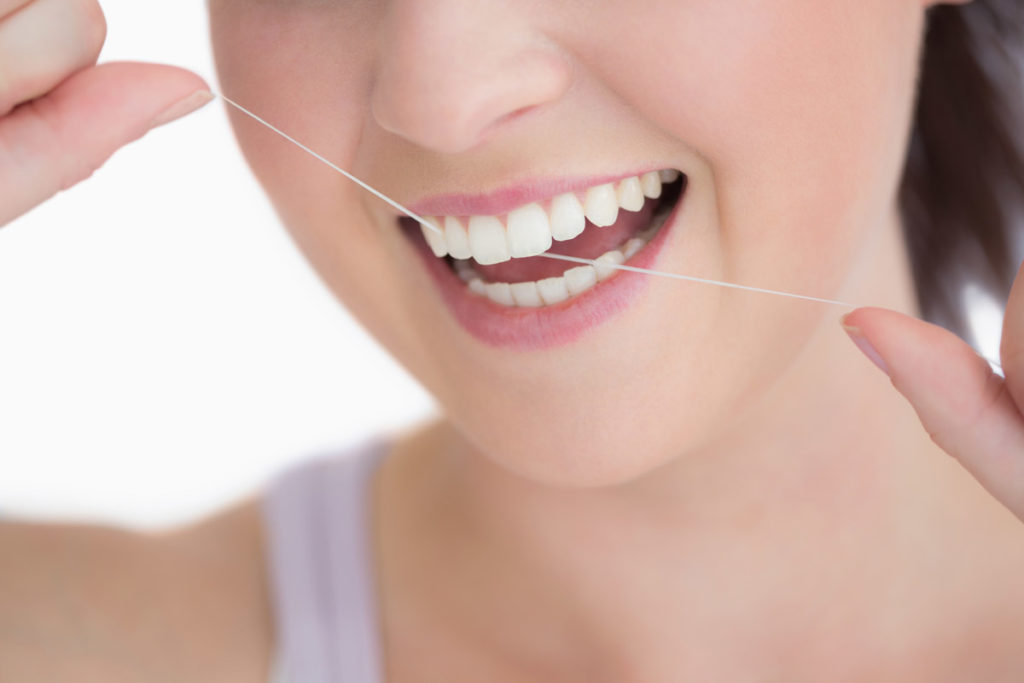Is Flossing Still Beneficial? Recent Study Offers Insight
Flossing has been a highly parroted aspect of dental hygiene ever since the early 1900s. Dentists around the world continuously suggest adding flossing to your daily teeth-brushing regimen. Several noted organizations recommend it, including the American Dental Association (ADA) and the Department of Health and Human Services (HHS). HHS and the ADA even stated that “flossing is an important oral hygiene practice,” and that “cleaning, tooth brushing, and cleaning between teeth have been shown to disrupt and remove plaque.” With so many committees and organizations in support of flossing, is there any question to its effectiveness? Is flossing actually necessary?
The Research
According to a recent study conducted by the Associated Press (AP), flossing may not be as useful as we currently believe. The AP reviewed a decade’s worth of research covering the effectiveness of flossing, with a specific focus on 25 different published studies. Each of the studies examined comparisons of using just a toothbrush or using a combination of teeth brushing and flossing. After pouring over the data, the AP stated that the evidence was “weak, very unreliable,” and that much of it carried “a moderate to large potential for bias.”
The ADA and the American Academy of Periodontology also claimed that other studies proved flossing helps battle plaque buildup, prevents gingivitis, and prevents tooth decay. AP discovered that much of the research was lacking in reliability due to the use of outdated methods and small sample groups. For example, one of the studies used a sample group of only 25 people, and the testing only covered a single use of floss. According to a similar review conducted in 2017, “the majority of available studies fail to demonstrate that flossing is generally effective in plaque removal.”
Acknowledgements & Statements on the Findings
After AP unveiled its review, some of the presidents and spokespersons of these groups acknowledged the apparently weak evidence. AP’s press release states that, after a private interview with the president of the periodontists’ group, Wayne Aldredge, he stated that “the impact of floss might be clearer if researchers focused on patients at the highest risk of gum diseases, such as diabetics and smokers.” They also managed to get a spokesperson for the ADA to admit to the weak evidence, though he did blame the problem on “research participants who didn’t floss correctly.”
AP also reached out to the two major companies that manufacture floss, Procter & Gamble, and Johnson & Johnson. Both companies responded to initial inquiries but were ultimately unable to offer any compelling evidence to back their products. The spokesman for Johnson & Johnson even refused to comment after AP provided a list of studies that refute the effectiveness of floss. It’s not surprising either company decided not to comment—most of the studies were funded or directly designed by them.
So, should you still floss?
In short—probably. Even some of the biggest skeptics of flossing still suggest people include it in their dental hygiene routine. Why? Because despite the questionable methods of some studies, there is still some evidence showing that it works. Flossing is relatively harmless (unless you’re doing it incorrectly), so there’s a general feeling of “it can’t hurt to keep doing it.” Whether or not it’s actually useful is still in question, but, until stronger evidence can be provided either way, the choice to keep flossing is up to you.

